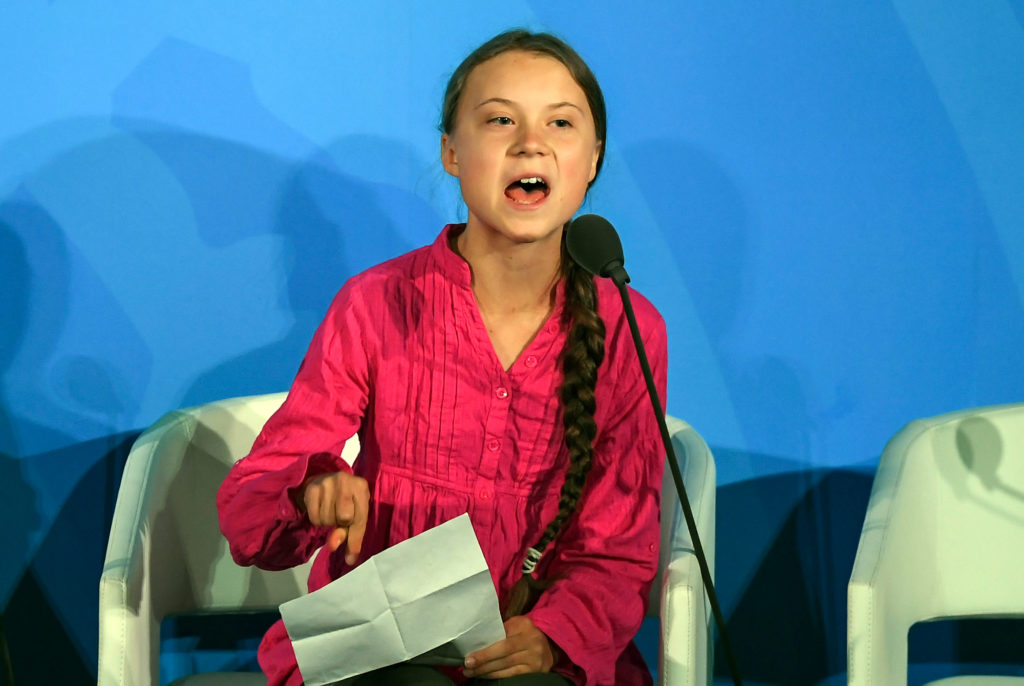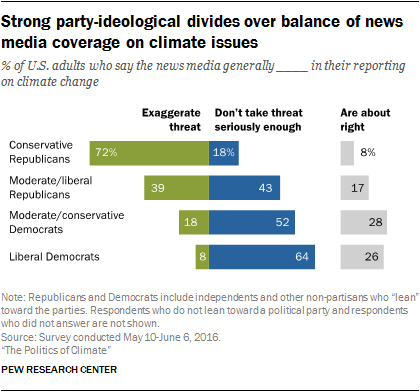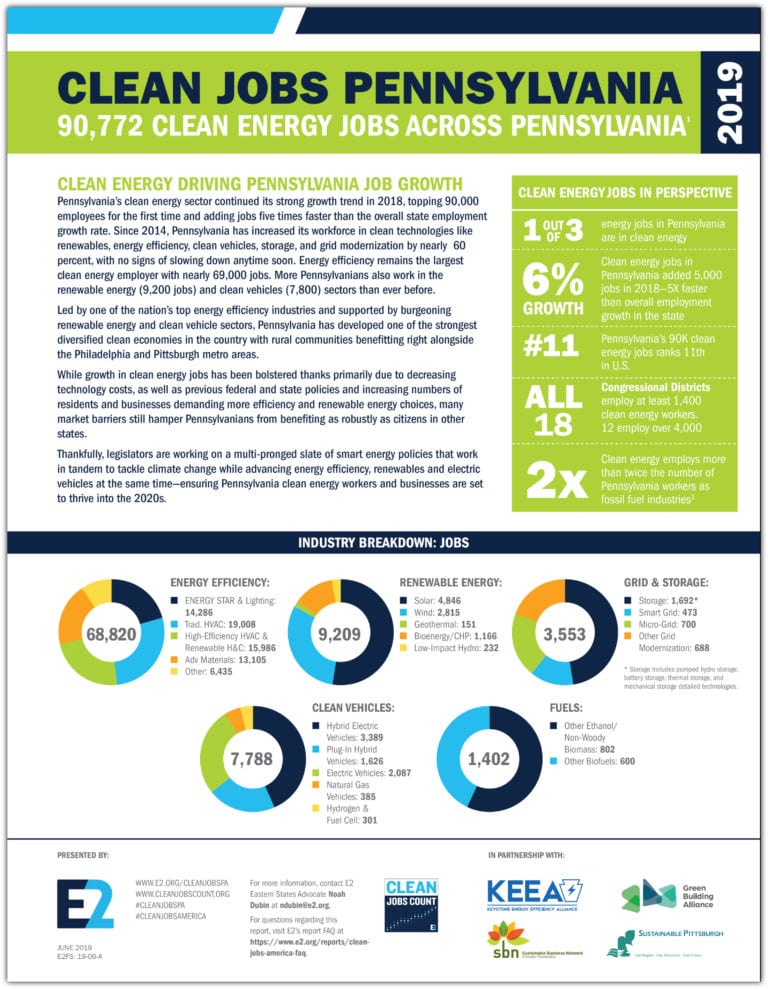Part 1 – Where We Stand
Last week got off to quite a start with Greta Thunberg shaming the world’s adults into stepping up for the climate at the United Nations Climate Action Summit.[1] I was amazed by her speech, her poise, and her bravery, but I was also saddened by the fact that she had to be there in the first place, as she mentioned her own frustrations about the seeming lack of concern (or, at the very least, action) on the part of the rest of us for our warming planet.
Individual Actions for Existential Threats
After listening to Greta’s comments, I had a conversation with a good friend about a common dilemma of high passion paired with low action, and it’s a situation I’ve encountered many times over the course of my life: this idea of “I want to do something, but I don’t know what to do.” I know many people who ride bikes instead of driving cars, who take reusable shopping bags and Tupperware with them when they go out, who buy food in bulk, buy clothes second-hand, and are mindful of whether or not they really need to buy something to begin with. But it is apparent (at least to me) that those actions alone are not enough to reverse or even halt the global temperature rise we’re seeing.

I specifically asked my friend “what exactly do we have control over aside from our own actions and our decisions in the voting booth? What should we be doing? Writing more letters to legislators and companies? Doing more research and drawing more attention to impacts of decisions? Figuring out how to tread more lightly on the earth (and then spreading that message)?” Yes, there are things we as individuals can do (and there are fantastic articles about individual action and the best steps to take care of climate change[3]), but I worry that because they are not enough on their own, discouraged individuals simply won’t do them, thinking “why should I bother?”
It is hard for me to write this post without providing a silver bullet solution, but as I am fond of reminding people: when it comes to sustainability, there is no silver bullet … maybe silver buckshot at best, as climate activist Bill McKibben has said. To that end, I’d like to share some of my thoughts and experiences related to our climate that came up over the last week.
In addition to being Climate Week in New York City, there was also a conference in Harrisburg that I helped to plan for the Keystone Energy Efficiency Alliance.[4] There were a lot of great panels on the importance of energy efficiency, most of which were focused on cost savings around process improvements for businesses, as well as regulatory compliance for electric utility companies, but some sessions focused on equity for low-income families, health issues tied to energy efficiency in buildings, and the connection between energy efficiency and the climate. Overall, we had a great event with a variety of pertinent topics and thought-provoking ideas, some of which I would like to share here.
Disclaimer: It should be obvious, but my opinions are my own and not those of the Keystone Energy Efficiency Alliance or any other organization with which I am affiliated.
A Note on Politics
Let me start off by saying that while I do believe that political action will help to some extent, I do not believe that simply electing politicians who prioritize climate issues will be enough. I believe that we need to educate everybody – voters and legislators alike – on these issues so we can make changes on the individual, corporate, and policy levels. In any case, I make a point of not telling people how to vote, except that they should research the issues and the candidates fully before making any decisions. I believe it undermines the democratic process for me to tell you to vote for a specific candidate because I told you so or because I have certain perspectives and priorities, which are likely to be different than yours. I may, however, bring up a specific issue that I believe needs particular attention (such as this one) and encourage you to examine the stances of the various candidates. While I have never been a single-issue voter, I do believe that our climate is a growing issue and one that deserves our attention moving forward.
Many people around the world seem to be baffled at how the issue of climate has become one of the most intensely partisan issues we see in the United States today. It is such a polarizing issue that some people simply refuse to consider any information on the subject (or refuse to consider any information presented by a certain source.) I have no problem with questioning data, methodologies, and even the possible agenda of the person or organization sharing that information – examining for biases is a key part of good science. However, it greatly concerns me that we see a general consensus among the global scientific community that the climate is changing and that that change is related to human activity, and yet there are people who will not even entertain the possibility of 1) a change or 2) a connection between that change and human behavior.

I have been more skeptical about climate change than most people in my industry over the years, but as more conclusive data have been added to the climate narrative, my opinions have shifted. One of the reasons why I love examining different perspectives is that it helps to uncover my own biases that I might not have considered. It is difficult to do that without any ego (and believe me, mine is fragile), but I try to remind myself that we are all constantly learning and no one has all the information. With that in mind, I love that I get to help plan a conference every year that helps me learn about new information, innovations, and perspectives across the energy efficiency industry.
The Effect of Markets
Over the past few days at my conference, we had some interesting discussions and speakers, many of which touched on our current political climate, and some of which had a distinctly right-leaning perspective. Our breakfast keynote speaker on Friday, Greg Puschnigg, CEO of Boss Controls,[6] addressed the fact that while climate change is such an intensely partisan issue in the United States, that is not the case elsewhere in the world. He explained that conservative governments in other countries do not deny that climate change is happening; ours does.
I was not aware (though I feel like I should have been) that all nations around the world are required to purchase oil in US dollars.[7] His point in bringing this up was that as long as our energy mix remains fossil-heavy, the “petrodollar” as it is called will remain strong. On the other hand, if we in the United States diversify our fuel sources and begin to rely less on oil, then it will be harder to justify dollar-based transactions for oil and, by extension, United States dominance in global markets.
Granted, this man is the CEO of an energy efficiency technology company. It behooves him to talk about the value of efficiency at an energy efficiency conference, but he was clear about his concerns beyond that of his business. He mentioned his children and his desire for their wellbeing amid the warming climate and conflicts over oil; he wondered what kind of world they will have to inherit.
I personally agree that breaking our addiction on oil will benefit our country in the long run, aside from the obvious climate impacts. I have heard many conservatives talk about the benefits of energy efficiency and renewable energy using terms like “national security” and “energy independence.” I have sat in many a republican legislator’s office talking about the resulting benefits for the economy, as green jobs in Pennsylvania have grown year by year to employ over 90,000 in 2019.

Puschnigg talked about how energy and technology industries are ripe for change, and that we can start to make that change happen from the inside out by demanding clean energy. He also anticipates a lot of resistance on this front from our own government, from the military, and even from banking institutions that depend on the dominance of the US dollar in global markets. He closed his speech by reminding us that change will happen one way or another, and that he’d rather see it happen proactively through innovation than reactively through war.
To support innovation, Puschnigg believes (and I agree) that we need government leaders and private industry working together. Private industry is where I will pick this thread up next week.
What do you think about the role of the government in climate issues or the role of the dollar in our energy markets? I am fascinated to do more research into this topic and would love to hear what you have to think.
Thanks for reading!
[1] https://www.npr.org/2019/09/23/763452863/transcript-greta-thunbergs-speech-at-the-u-n-climate-action-summit
[2] https://www.rollingstone.com/politics/politics-news/greta-thunberg-call-un-speech-new-york-2019-888824/
[3] https://www.cnn.com/interactive/2019/04/specials/climate-change-solutions-quiz/
[5] https://www.pewresearch.org/science/2016/10/04/the-politics-of-climate/
[6] https://www.crunchbase.com/person/greg-puschnigg
[7] https://www.thebalance.com/what-is-a-petrodollar-3306358
[8] https://www.e2.org/reports/clean-jobs-pennsylvania-2019/
0 Comments